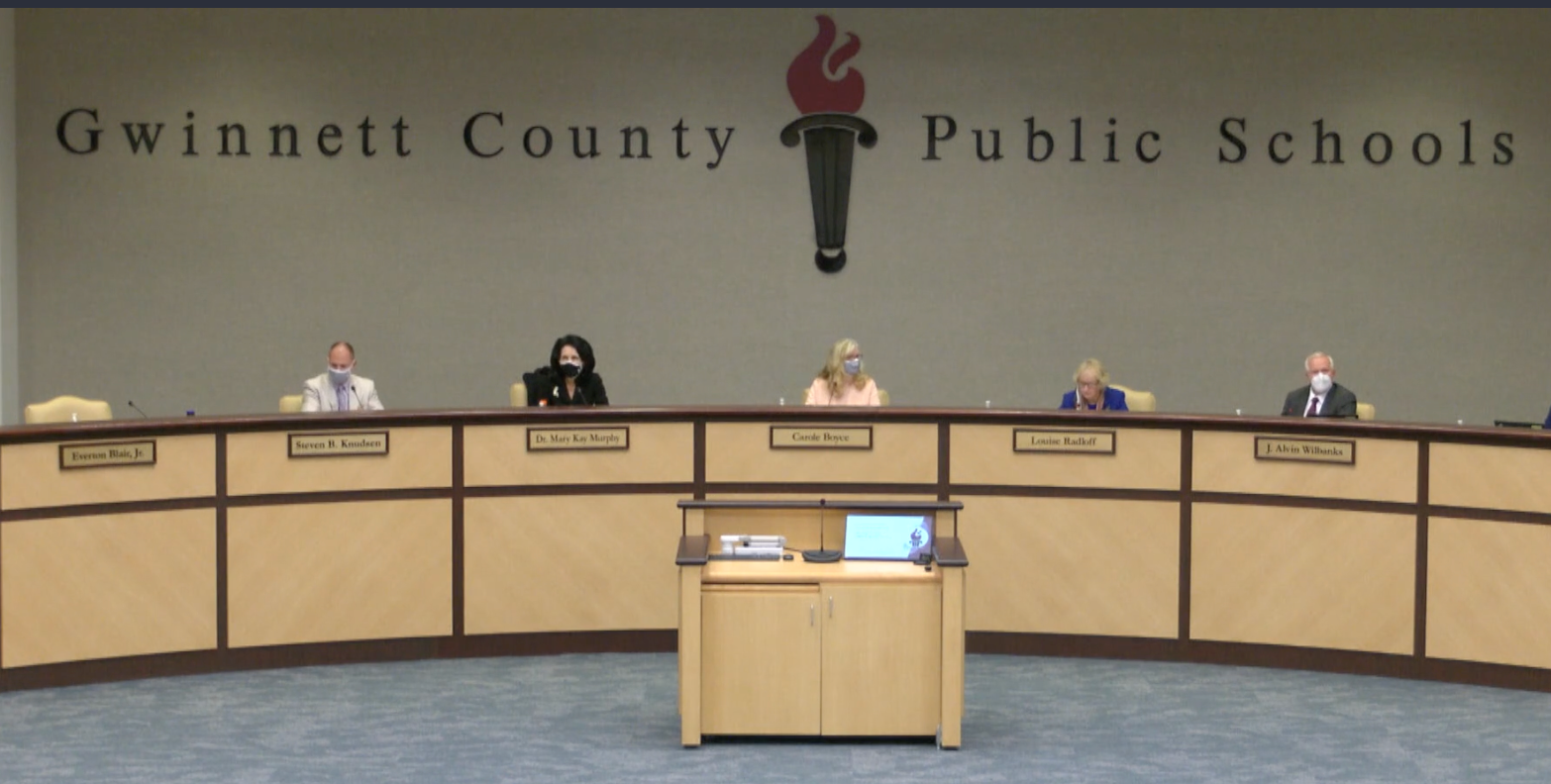Accreditor: Gwinnett School Board Members Must Improve

Gwinnett County School Board pictured in 2020.
Martha Dalton (screen shot)
School board members in Georgia’s largest school district must do more to learn their proper roles, a special review mandates, although the district emerged with accreditation intact.
Accrediting agency Cognia released its report on Gwinnett County schools Monday after complaints from community members that the board was acting improperly, that the district was allowing racially discriminatory discipline to persist, and that the board members were ignoring declining academic performance.
>>> Related Story: As Gwinnett School Board Changes, Divisions Continue
Cognia agreed that some board members were overstepping their bounds or were behaving questionably. But the agency found little evidence of racially discriminatory discipline and was dismissive of concerns about declining achievement, saying academic outcomes in the traditionally high-flying district are stable.
“This review is not something that we have taken lightly,” Superintendent Calvin Watts said in a statement. “Our district governance and leadership team will learn from Cognia’s findings as we move forward together.”
The 177,000-student district has been undergoing a contentious leadership transition over the last two years, after two challengers won election to the five-member school board. That created a nonwhite majority on the board that reflects a student body that long transitioned to majority nonwhite. Students in the district today are 33% Hispanic, 32% Black, 19% white, 11% Asian and 4% multiracial.
The new majority fired longtime superintendent Alvin Wilbanks, cutting ties 11 months ahead of Wilbanks’ planned retirement. The board then hired Watts, its first Black superintendent. Watts had been a superintendent in suburban Seattle for six years, and had worked in Gwinnett County for 13 years before that.
The changes were accompanied by often-argumentative school board meetings, aggravated by the outside stresses of the COVID-19 pandemic and political agitation over what public schools should teach about race.
The review, compiled after interviews with 124 employees, parents, students and community members, found that board members have at times circumvented the chain of command by making demands for information directly of staff members, instead of requesting it through the superintendent, as accrediting standards demand. It also found that board members were improperly end-running the board chair with demands for emergency meetings.
The report highlighted social media posts by board members that sought money or that some found offensive. The report did not name which board members it was discussing, but critics have zeroed in on social media posts by board member Tarece Johnson.
The review issued mandatory directives that board members need more training in parliamentary procedure and their appropriate roles, must review all school board policies, must revise ethics policies and commit to following them and must create processes to evaluate themselves and collect community feedback.
“The board should seek training to build collegiality, promote positive interaction among board members and implement best practices from training with fidelity and quality,” the report states.
The district must complete the steps before Cognia returns for a follow-up in May.
In a news release, the district said it already reviews school board policies annually to make sure they comply with state law and rules. It also said the board is already working on norms “for how the board will collectively create a healthy space for productive governance as Board members work with each other, the superintendent, and the communities they serve.”
“We are excited to see that the recommendations Cognia suggested are initiatives our board is already working on,” board chair Everton Blair Jr. said in a statement. “We look forward to growing and learning together as a board governance team with our new superintendent.”








